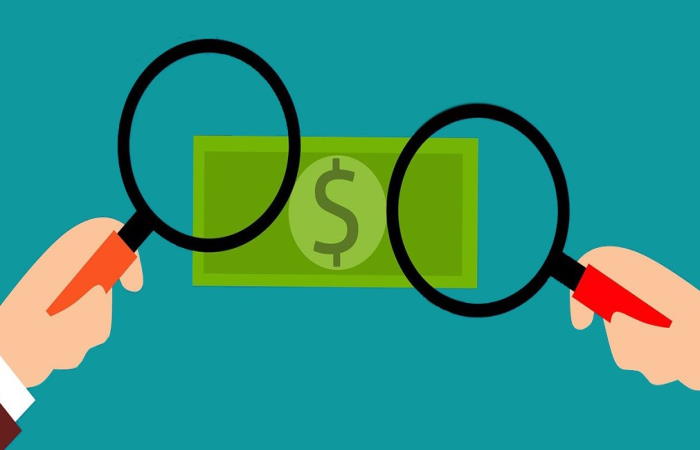1031 Exchange Rules: What You Need to Know
In the real estate industry, the term 1031 exchange is based on the IRS Section 1031 that is considered by savvy investors as a strategy to build wealth and defer capital gains taxes. Is this the right real estate investment strategy for you? First, you need to understand how a 1031 exchange works and the strategies involved with it.
How does a 1031 exchange work?
The simplest definition is that a 1031 exchange is when you swap one investment property for another. It is also more commonly known as like-kind exchange. Savvy investors use this approach so that they can have no tax or limited tax due on the property exchanged.
Under the IRS Section 1031, any proceeds derived from the sale of a property will be taxed. Therefore, you must transfer the proceeds of that sale to a qualified intermediary instead of the seller. The qualified intermediary then transfers the proceeds to the owner of the replacement property.
The qualified intermediary can be an individual or a company. They will be who facilitate the 1031 exchange by holding the funds to be used in the transaction until such time that a replacement property is selected and the actual exchange can take place. The qualified intermediary should not have any existing relationships with either party involved in the exchange of properties.
For those who are new to this form of investment, it might require a high investment threshold and the holding time could be longer in certain situations. You need to prepare for that if you wish to pursue this method of buying a real estate investment. This approach to real estate investing is often considered ideal for those with a high net worth. It also often involves the help of professionals due to the complexity of this real estate transaction.
Why choose a 1031 exchange?
As an investor, timing is always crucial when making important investment decisions. This is the case with a 1031 exchange. These are some of the reasons why you would need to get involved in the exchange of properties and when:
- When you are trying to diversify your investment or asset portfolio
- When you are looking for an investment property with better return prospects
- When you want to own a managed property rather than manage an investment property by yourself
- When you wish to consolidate your investment properties for ease of estate planning
- When you want to hedge against depreciation of your property’s value
The primary reason a lot of savvy investors are involved in a 1031 exchange is the tax deferral. When you sell a property and then buy a new one, you need to pay tax in the process. The capital gains tax can be quite costly, and it could eat away at your potential profit. When you choose this option for investing in a new property, you can defer the payment of tax and free up more capital in order to invest in your replacement property.
The Importance of Depreciation in 1031 Exchange
Depreciation is one of the concepts that you must fully understand if you choose to get involved in a 1031 exchange. This concept plays out in this real estate investment and is how you can maximize its benefit.
Depreciation refers to the cost of the investment that is written off on an annual basis. It takes into account the wear and tear that is experienced by the property, which is why its value can gradually decline over time. If you decide to exchange your investment property for more than its depreciated value, it is your responsibility to recapture that depreciation. The amount of depreciation will be added to your taxable income through the sale of the property.
Since the depreciation of a property will increase over time, engaging in a 1031 exchange makes more sense in order to avoid paying the taxes, especially with the depreciation recapture.
Choosing Your Replacement Property: 1031 Exchange Rules
There are a few major rules that you must observe when you are choosing your replacement property or engaging in a 1031 exchange.
- Three-Property Rule: This rule enables you to select from three properties that will be potentially exchanged for your property, regardless of the market value.
- 200% Rule: This gives you the option to select as many potential options as replacement property, as long as the total value of these properties does not exceed 200% of your existing property’s market value.
- 95% Rule: This rule enables you to identify as many properties as long as you acquire properties that cost no less than 95% of their market value.
To put it simply, the value of the replacement property should be equal to or higher than the value of your property.
There are additional rules involved with a 1031 exchange based on the timeline of events.
45-Day Rule
Once you have sold your property, the qualified intermediary holds the funds and a replacement property must be designated within 45 days. You must provide a written request to the intermediary indicating the property that you have chosen as a replacement.
180-Day Rule
In the event of a delayed exchange, the allowable time frame for closing the replacement property is up to 180 days. This timeline runs concurrent with the one above. This means that you must have chosen a property within 45 days, which leaves you with 135 days to close the deal.
Fees and Other Expenses Involved
If you decide to get involved in a 1031 exchange, it is important to understand the fees involved. The proceeds from the sale of the property can be used to cover the payment of the replacement property and a few other fees during the transaction.
The following can be paid for by the proceeds from the sale:
- Real estate broker commission
- Filing fees
- Attorney’s fees
- Qualified intermediary fees
- Tax fees
- Escrow fees
- Finder fees
- Insurance premiums
On the other hand, you cannot use the proceeds from the sale to cover these fees and/or expenses:
- Property taxes
- Mortgage fees
- Cost of repair or maintenance
If you are not sure how a 1031 exchange works, make sure to consult a professional. They can best advise you on the steps involved and how you can maximize your investment.


